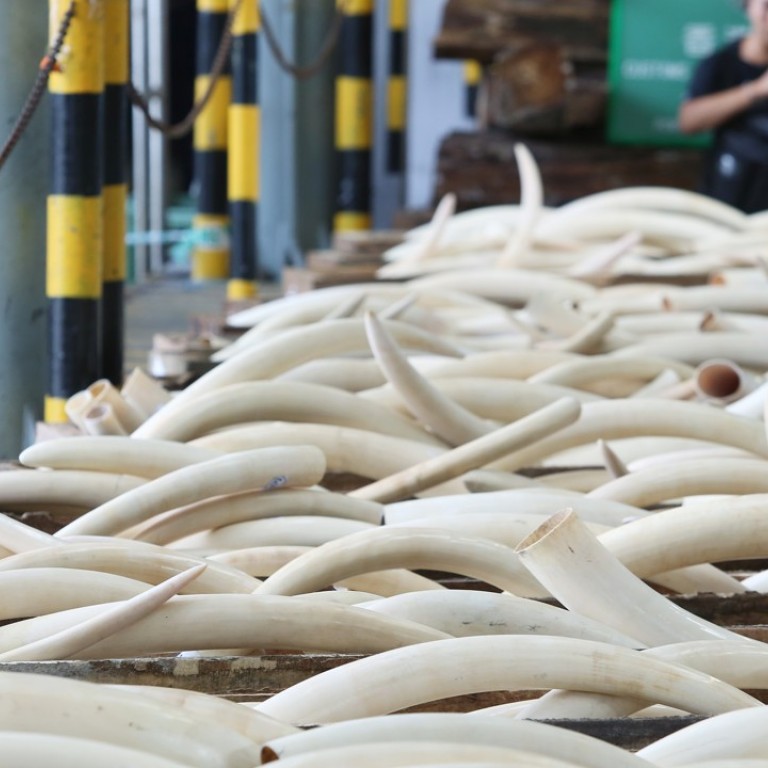
Hong Kong must hit smugglers of wildlife harder
Dramatic rise in seized parts of endangered animals highlights the need for law used against triads to come into force against cruel international syndicates
It is no secret that China’s bewildering varieties of cuisine and traditional medicine feature some vulnerable and endangered wildlife. Rising affluence and changing lifestyles are also leading to more exotic animals becoming pets. That explains why there is a thriving market for illegal poaching and trading of such items. Hong Kong, being a global transit hub at the country’s doorstep, also plays a part in that infamous but lucrative business. More vigorous education and enforcement are needed to help save vanishing species.
As many as 174 tonnes of parts from endangered species worth HK$58 million were seized in 522 cases from January to last month, and 374 people were arrested, with no fewer than 101 prosecutions pending. Compared to the corresponding period last year, the haul resulted in a 78 per cent rise in cases, twice the number of arrests and three times the tonnage seized.
Among the items seized were 16 tonnes of scales worth HK$13 million from pangolins, whose meat is also sought after. Its scales are said to improve blood circulation and lactation for breastfeeding. Currently, processed scales may only be sold at designated hospitals and pharmaceutical companies with government approval. However, they were also available at popular online store Pinduoduo and were only delisted after the company was alerted following a Post investigation. Similarly, an endangered species of tuna was found at a seafood expo in Wan Chai, but no law was apparently broken.
Credit goes to the government for its enforcement action, but the figures this year underline just how serious the problem is. At present, the smuggling of wildlife is usually prosecuted under the Protection of Endangered Species of Animals and Plants Ordinance. Although the maximum penalties, a HK$10 million fine and 10 years in jail, appear to be substantial, they pale into insignificance when compared with the lucrative returns. The idea of using the Organised and Serious Crime Ordinance is worthy of serious consideration. As trafficking may involve international syndicates, the law empowers financial investigations and allows requests to the court for harsher penalties. Equally important is education and publicity. Consumers can help break the chain by saying no to such products.

